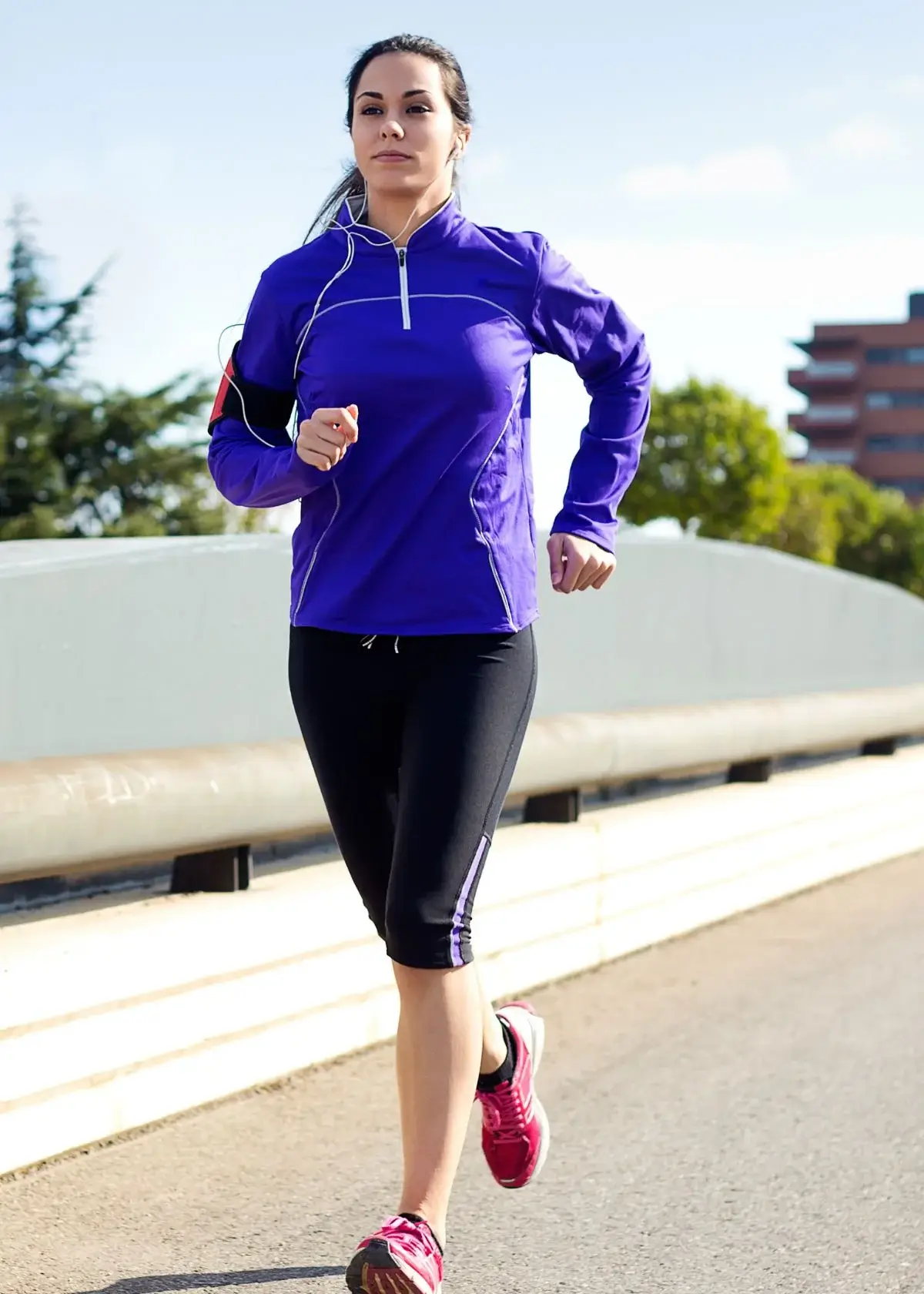As runners, we love the feeling of the sun on our skin as we conquer miles, but protecting ourselves from harmful UV rays is essential. Sunscreen is a runner's best friend for maintaining healthy skin and preventing sun damage. In this blog post, we'll dive into the key considerations for choosing the right sunscreen for runners. Let's get started!
Understanding Sun Protection
Before we delve into the specifics, it's crucial to understand the basics of sun protection. Sun Protection Factor (SPF) measures a sunscreen's ability to protect against UVB rays, which cause sunburn. Look for a sunscreen with a broad-spectrum label, indicating protection against both UVA and UVB rays. UVA rays penetrate deeper into the skin, contributing to skin aging and damage.
Considerations for Runners
When choosing sunscreen for running, remember a few key considerations.
1. Sweat and Water Resistance: Opt for a sweat and water-resistant sunscreen to ensure it stays on your skin even during intense workouts or long runs.
2. Broad-Spectrum Protection: Look for a sunscreen that offers broad-spectrum protection, shielding your skin from UVA and UVB rays.
3. Lightweight and Non-Greasy Formulas: Choose a lightweight sunscreen that doesn't leave a greasy residue. This will ensure maximum comfort while running.
Best Sunscreen Ingredients for Runners
While various sunscreen ingredients are available, some are particularly beneficial for runners.
1. Zinc Oxide and Titanium Dioxide: These are physical sunscreen ingredients that sit on top of the skin and act as a barrier, reflecting UV rays away from the skin.
2. Chemical Sunscreen Ingredients: Look for ingredients like avobenzone, octinoxate, and octisalate, which absorb UV rays and convert them into heat.
Application and Reapplication Tips
Proper application and reapplication are essential to get the most out of your sunscreen.
1. Proper Application Techniques: Apply sunscreen generously to all exposed areas of the skin, including the face, neck, arms, and legs. Don't forget commonly overlooked areas like the ears and the back of the neck.
2. Frequency of Reapplication: For prolonged runs, reapply sunscreen every two hours or as directed on the product label. If you sweat excessively or wipe your face with a towel, consider reapplying more frequently.
Additional Sun Protection Measures for Runners
While sunscreen provides crucial protection, it's not the only line of defense against the sun. Consider incorporating these other measures into your sun protection routine:
1. Clothing: Opt for lightweight, breathable clothing that covers your skin, such as moisture-wicking long sleeves and wide-brimmed hats.
2. Accessories: Protect your eyes with UV-blocking sunglasses and shield your lips with a lip balm containing SPF.
As runners, we cherish our time in the sun, but it's essential to prioritize sun protection. Choosing the right sunscreen for your runs is crucial in maintaining healthy skin and preventing sun damage. Remember to look for sweat and water-resistant formulas, broad-spectrum protection, lightweight and non-greasy formulas, and the right combination of sunscreen ingredients. Practice proper application and reapplication techniques, and consider other sun protection measures such as clothing and accessories. With these tips, you can enjoy your runs while keeping your skin safe and healthy.
After extensive research, we have identified the best sunscreen for runners. We understand the importance of shielding your skin from the sun's harmful rays during your active endeavors. That's why we have carefully selected a range of top-performing sunscreens for runners. Whether you need maximum sweat resistance, broad-spectrum protection, or a lightweight formula that won't impede your performance, click on the provided link to discover your new favorite sunscreen for runners.
What are the specific challenges runners face in terms of sun protection?
Runners confront a unique array of challenges in sun protection arising from the dynamic nature of their outdoor pursuits. The combination of intense sweating, constant movement, and extended sun exposure demands sunscreens tailored to meet these specific challenges. Formulations must endure the physical rigors of running and ensure consistent coverage, addressing the demands imposed by perspiration, varied terrains, and prolonged exposure to the sun. The nuanced requirements of runners necessitate a careful selection of sunscreens capable of providing reliable and sustained protection throughout their runs.

What role do antioxidants play in the best sunscreen for runners?
Antioxidants, exemplified prominently by vitamin E, assume a multifaceted role in enhancing the efficacy of sunscreens specifically designed for runners. Beyond the primary function of shielding against UV radiation, antioxidants become instrumental in the broader landscape of skin health. By acting as formidable defenders against free radicals generated during sun exposure, antioxidants contribute a secondary layer of defense. This bolsters immediate protection and fosters overall skin resilience, fortifying runners against the long-term effects of sun-induced damage.

What is the difference between sunscreen sprays and lotions for runners?
The divergence between sunscreen sprays and lotions for runners centers on considerations of application convenience and coverage consistency. While sprays offer a swift and easy application process, lotions often provide a more thorough and uniform coverage. Runners find themselves at the crossroads of convenience and effectiveness, needing to balance the quick application of sprays with the imperative of ensuring comprehensive and even protection during their dynamic activities. The choice between these formulations becomes a nuanced decision shaped by individual preferences and the necessity for holistic coverage amidst the challenges posed by varied movements and changing sunlight intensities during a run.

How does the consistency of sunscreen affect its performance during running?
The texture and consistency of sunscreen wield a substantial influence on its performance, especially within the context of the rigorous activity of running. Lightweight formulations emerge as the preference among runners due to their ease of application and rapid absorption. These formulations mitigate the discomfort associated with heaviness or stickiness, ensuring a seamless experience during intense physical activity. Choosing the right consistency extends beyond mere comfort; it encourages regular and consistent application—a pivotal aspect of sustaining adequate sun protection throughout a run.

How does sun exposure impact sunscreen effectiveness?
Sun exposure introduces a dynamic variable that significantly influences the effectiveness of sunscreen, particularly during extended outdoor activities such as running. The potency of sunscreen gradually diminishes through interactions with sunlight. Therefore, regular reapplication becomes imperative, occurring at intervals of at least every two hours or more frequently for runners. This meticulous approach aims to counteract the cumulative impact of sun exposure, ensuring that runners maintain a robust shield against UV rays across the changing light conditions and varying intensities experienced during their runs.
Should runners prioritize water resistance in their sunscreen choice?
Water resistance is pivotal for runners, especially those prone to copious sweating or traversing humid environments. The strategic selection of water-resistant sunscreens becomes paramount in such scenarios. These formulations boast tenacity in adhering to the skin during physical activity, ensuring prolonged protection against UV rays even in wet conditions. For runners immersed in activities involving water or intense perspiration, prioritizing water resistance becomes an integral facet of their sun protection strategy. This emphasis reinforces the steadfast defense provided by the sunscreen, addressing the specific challenges presented by varying environmental conditions and augmenting the overall resilience of the runner's skin.







